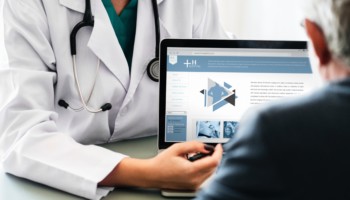The final steps of the legislative process are expected soon.
After several stages of amendments and discussions of the Bill of the Law on the organization and transformation of the French healthcare system at the French parliament, adoption of the final version is expected for the end of July.
One of the pillars of this Bill is the digital transformation of the French healthcare system.
The bill seeks to encourage the introduction of new and innovative solutions to modernize the current French healthcare system. In particular, it promotes:
• The use of telemedicine and telecare by healthcare practitioners and patients
Provisions of the Bill relating to telemedicine and telecare aim to promote the use of such digital solutions in France. This could be extremely beneficial, for example, for people living in “medical deserts”, i.e. geographical zones where it might take months to obtain an appointment with a specialist, etc.
• A digital platform where health practitioners and patients can access the patient’s medical data
This platform will be used in particular to register patients’ personal health data and medical records under a file known as the “shared medical file” (Dossier médical partagé). The aim is to facilitate the healthcare professional’s access to each patient’s medical records in order to provide them with the information required to deliver the most suitable care. The patient will be able to choose to close this file or to limit the access at any time. For example, patients could choose to limit access to allow only certain doctors to view their information.
• The Health Data Hub, a platform to share aggregated health data
The Health Data Hub is intended to facilitate sharing of aggregated health data with scientists and researchers for research purposes. The aim is to provide scientists and researchers with access to a large amount a data so that they can use them for public health purposes. For example, the data could be used to calculate the likelihood of a disease in a specific geographical area; or in specific populations; or to anticipate a diagnosis or disease progression based on recurring symptoms in a population.
Health service providers should recognize the appetite for these new solutions as an opportunity to offer and develop new solutions and applications in the healthcare sector. This could particularly be the case for m-health applications, solutions relying on Internet of Medical things, Artificial Intelligence and Big Data based solutions, etc. HSPs will need to ensure that they comply with all legal and regulatory rules applicable to such solutions, particularly in terms of personal data protection, processing and hosting of health data, implementation of appropriate security measures, and the regulation of medical devices etc.




